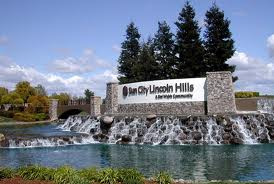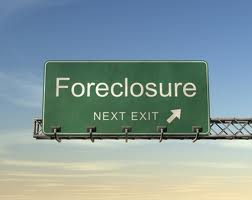Is there a price difference between bank-owned sales, short sales and regular sales in the Sacramento area? Usually there is, but the level of difference really depends on the neighborhood. The following two graphs are taken from pages 10-11 of The Wright Report and they show average sales price by type of sale.


Based on these graphs for the Sacramento area, there is an obvious difference between conventional sales and REO & short sales, don’t you think? Of course we need to consider that there could be condition issues that warrant a price variance too since many bank-owned sales are not in pristine “move-in” shape. But overall the difference is fairly obvious.
 Neighborhood Mini-Case Study: Let’s look at a particular neighborhood to get a closer view of distressed vs traditional sales. The data below represents the “Bridgegate” model in Sun City Lincoln Hills. Less than 30% of all sales in Sun City Lincoln Hills last year were distressed, which is a low percentage for the Sacramento area. However, even with a lower distressed percentage, if appraisers and agents do not consider all the data points, it can be easy to get the value or marketing price wrong.
Neighborhood Mini-Case Study: Let’s look at a particular neighborhood to get a closer view of distressed vs traditional sales. The data below represents the “Bridgegate” model in Sun City Lincoln Hills. Less than 30% of all sales in Sun City Lincoln Hills last year were distressed, which is a low percentage for the Sacramento area. However, even with a lower distressed percentage, if appraisers and agents do not consider all the data points, it can be easy to get the value or marketing price wrong.
- REO sale on 02/28/2011 – $212,000 (cash)
- Traditional sale on 05/13/2011 – $248,000 (conv/20% down)
- Traditional sale on 06/17/2011 – $230,000 (FHA/ 2 days on market)
- Active traditional sale: $239,000
- Pending traditional sale: $359,900 (outlier: massive upgrades w/ a view)
It looks like the bank-owned sale sold at the lowest end of the market because it is not consistent with the rest of the sales or listings. At the same time, the latest traditional sale sold in only two days and that also might not represent the market, right? There was no short sale, but it would not be surprising to have seen a short sale sell anywhere from $220,000-$230,000. There are a whole host of value issues to consider for the properties above, and one of them looks to be the nature of the sale – whether distressed or typical (and even how long the property was marketed). A market may be driven by foreclosures, but if we assume that across the board, we could really get an off-base picture of the market.
It can be very challenging to see any differences between distressed and regular sales in a neighborhood where the market is far more saturated with REOs and short sales (say 95% of all sales were distressed), but ultimately appraisers and agents still need to do their homework and use the right data in a neighborhood to correctly interpret the market because there is usually a difference. Typically in the Sacramento area we see traditional sales on top, then bank-owned sales and then short sales. Agree? Disagree?
Implications for the Difference between REO and Traditional Sales:
 Avoid REOs in appraisal reports: REO sales should be avoided in appraisal reports where possible. However, many areas in Sacramento have a percentage of distressed sales (bank-owned + short sales) near 70%, so it’s not always possible to use only traditional sales. I just appraised a condo recently and 35 of 36 sales over the past year were distressed.
Avoid REOs in appraisal reports: REO sales should be avoided in appraisal reports where possible. However, many areas in Sacramento have a percentage of distressed sales (bank-owned + short sales) near 70%, so it’s not always possible to use only traditional sales. I just appraised a condo recently and 35 of 36 sales over the past year were distressed.- Note the difference: If REO sales are used in an appraisal report and there is a difference noted in the market between distressed and traditional sales, an upward adjustment should be made (or at least less weight given to the distressed sale). The same principle applies to selling a property. A property is not worth less because it is a short sale. It is worth what it is worth, but it may need to be marketed more aggressively to offset any stigma in the market and avoid foreclosure. If the short sale was not a short sale, would it sell for more? That is the critical question to ask and leads us to a better picture of what market value is.
- Marketing Strategy: Sometimes a property does not generate interest as a short sale, but that does not mean it is not worth the listing price or more. Short sales tend to have a stigma among buyers, so they often need to be priced more aggressively to generate interest. Moreover, it is very common to see short sales generate very little interest at a certain price, but the same property will sell quickly as an REO at that same price. The listing agent and/or home owner need to understand the market in order to set the right price for the property, whether a short sale, REO or traditional sale.
- Quick Value vs. Market Value (tax appeals / FSBO): Avoid using only distressed sales when appealing your property taxes or listing your home as a FSBO. These sales may not represent the market. If they don’t represent the market, then you’re probably focusing on a “quick sale” value instead of “market value”
How have you seen foreclosure sales impact pricing in a neighborhood? What other implications do you see when we misinterpret the market?
If you have any real estate appraisal, consulting, or property tax appeal needs in the Greater Sacramento Region, contact me at 916.595.3735, by email, on our appraiser website or via Facebook.